Voice Lessons
Brentwood
Westwood Village
Tarzana
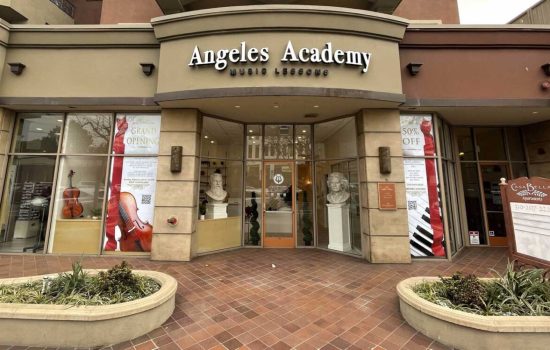
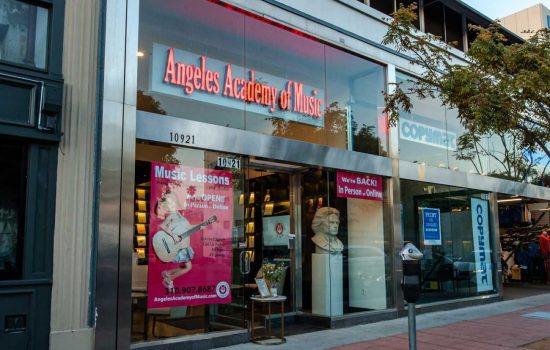
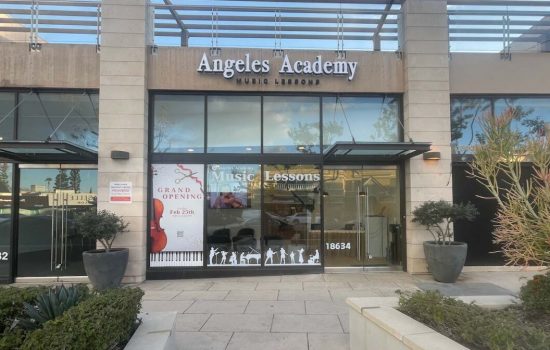


Private Lessons
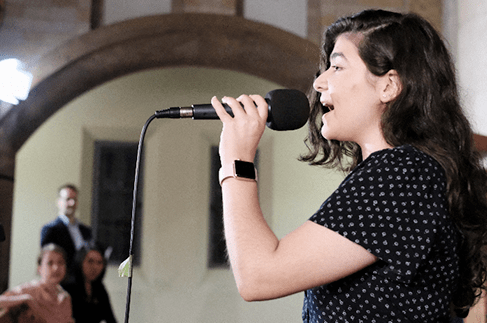

Serving all Ages
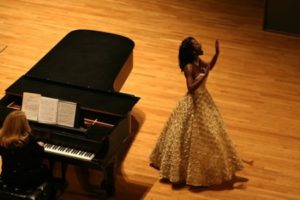
Voice Lessons For Kids
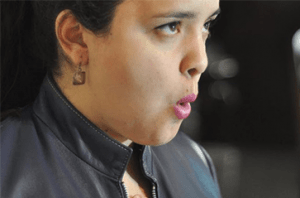
Voice Lessons For Adults
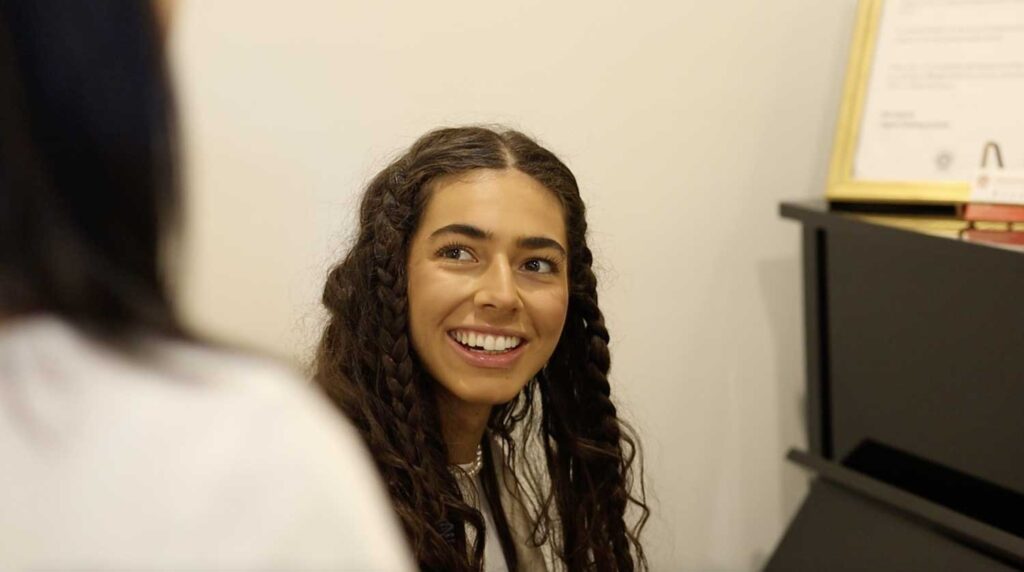
Why Take Voice Lessons With Us?
Great Instructors “a great school is just an amazing group of teachers.”
In our hiring process, we filter hundreds of prospective instructors in search of the qualities that make a great instructor. There are four qualities we are looking for. The first is a strong, positive personality. This is just essential to keep you excited about music, and engaged during the lessons. Secondly, we look for the instructor’s ability to create intelligent, achievable goals, that are customized to your needs. Great teachers will help you learn the techniques and skill you need, but do it though the music you love. Thirdly, a great instructor is intuitive. They have the sensitivity to know if what they are teaching you is being understood, and if their delivery is effective, (Keeping the energy and excitement high). Finally, we look for outstanding educational credentials. Our instructors possess degrees from some of the finest music schools in the world, places like Juilliard, USC, Berkley School of Music, Indiana University, and Royal Conservatory of London.
Recitals and Masterclasses
Students can regularly interact with peers by participating in our recitals and masterclasses, consistency you can’t get from a small private music studio. We offer approximately ten recitals per year for a variety of ages and levels, and even an adult recital. At these recitals and masterclasses, we offer achievement rewards such as certificates, metals, and trophies.
Recitals we Offer
- Beginning- Intermediate Level Recitals
- Intermediate -Advanced Recital
- Honors Recitals
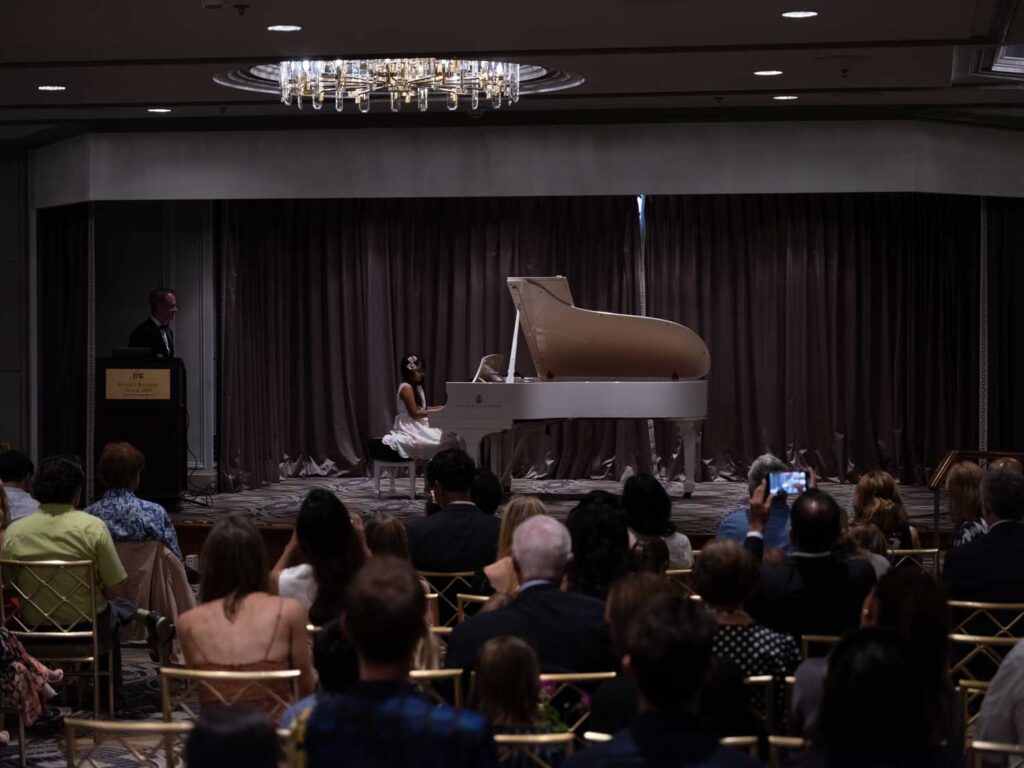
Concerts
Concerts
Angeles Academy sets itself apart with the highest caliber performance opportunities in leading venues around Los Angeles, such as the Beverly Wilshire Ballroom, (Four Seasons), where such events as the Emmy’s are held, as well as the BP hall at the Disney Center. The rare opportunity to perform in these world-class facilities increases student recital participation, preparation, and results.
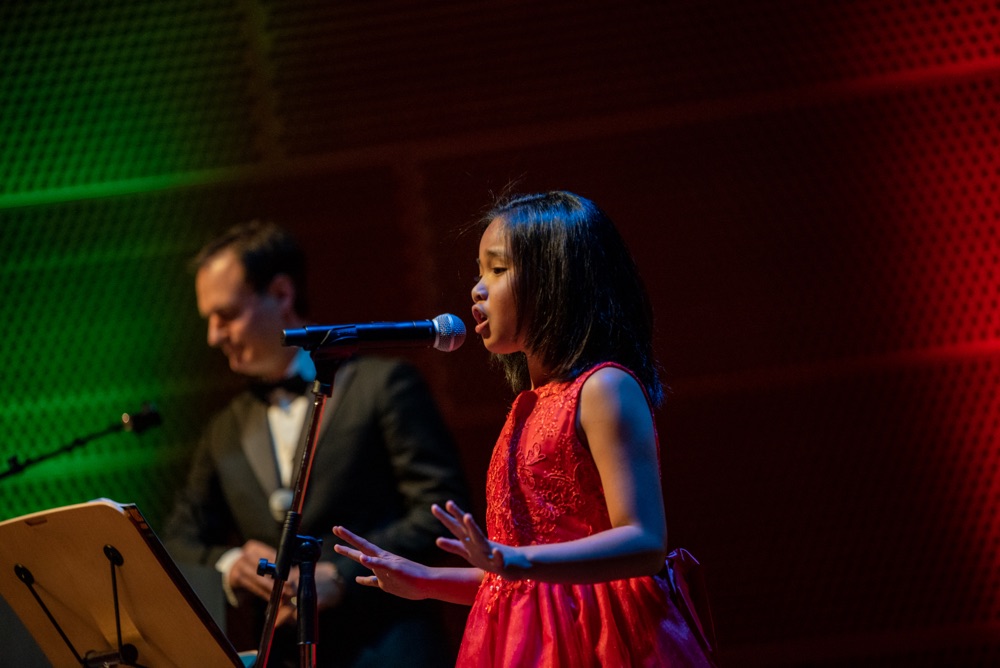
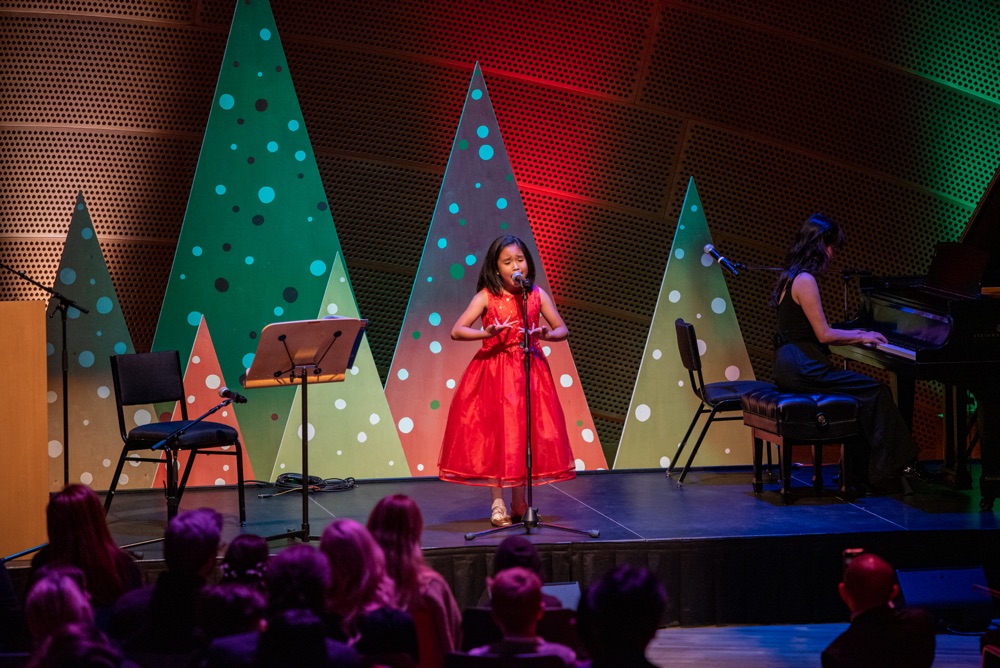
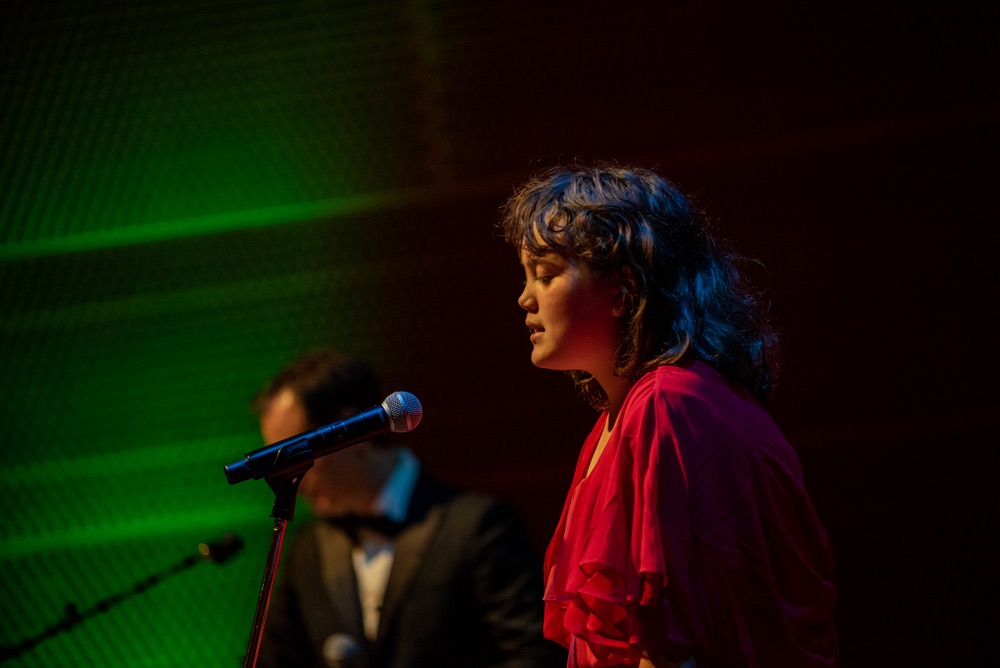
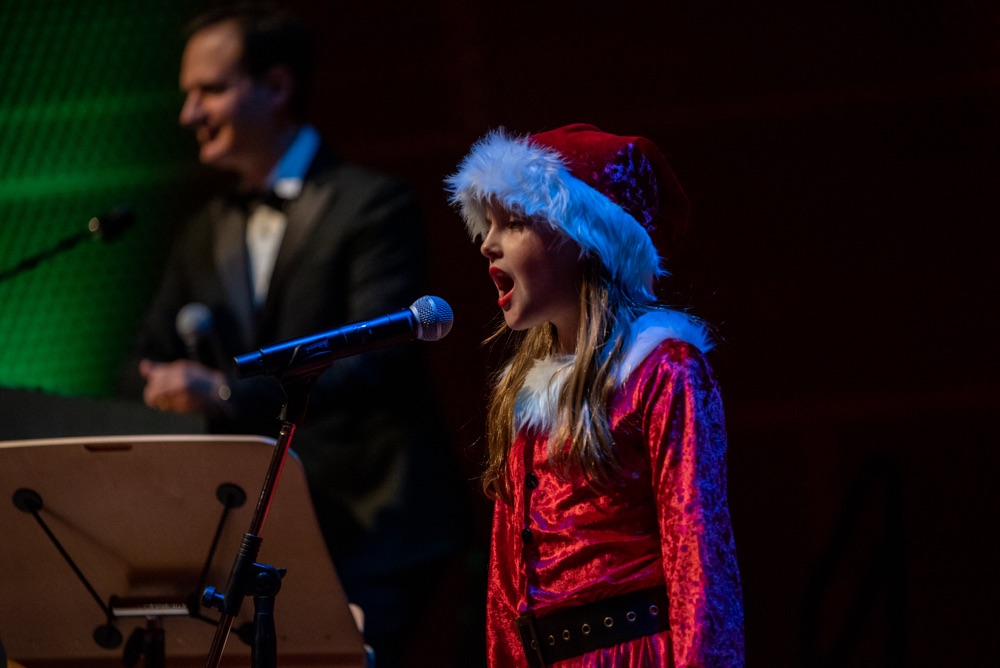
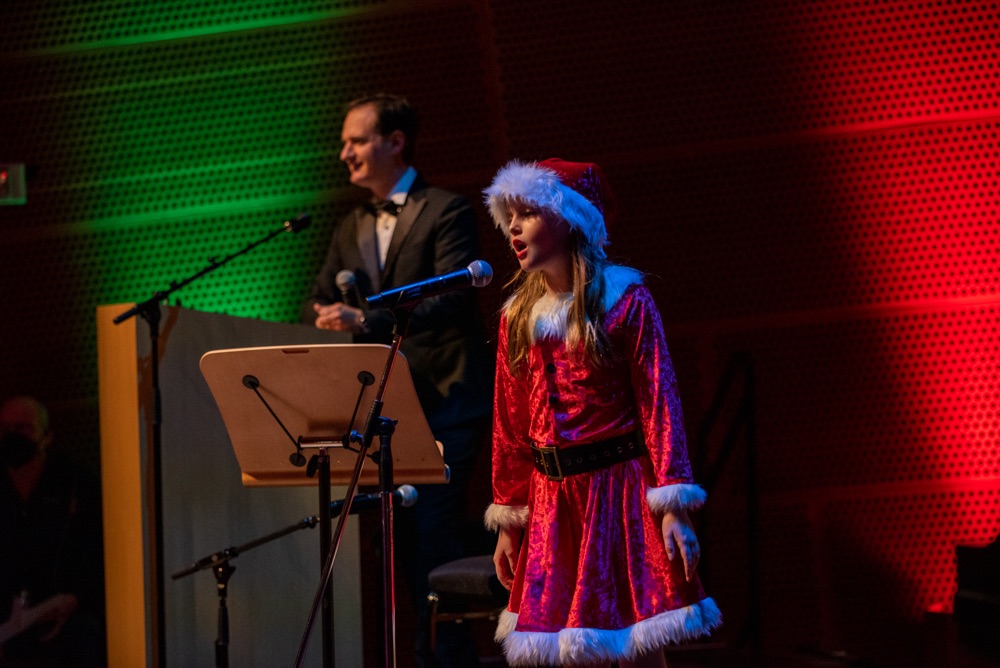



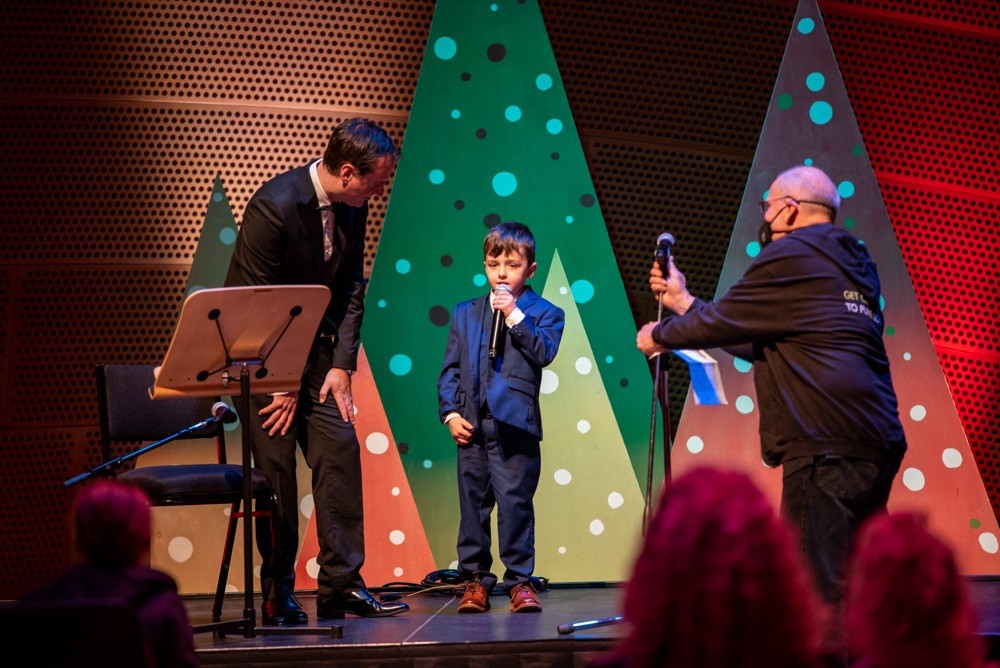
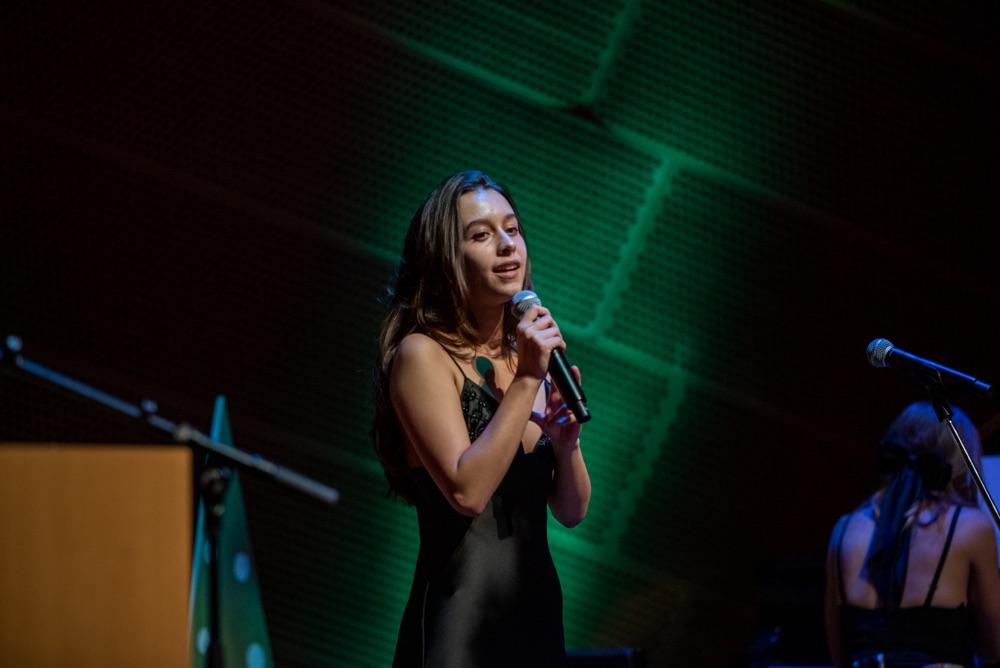
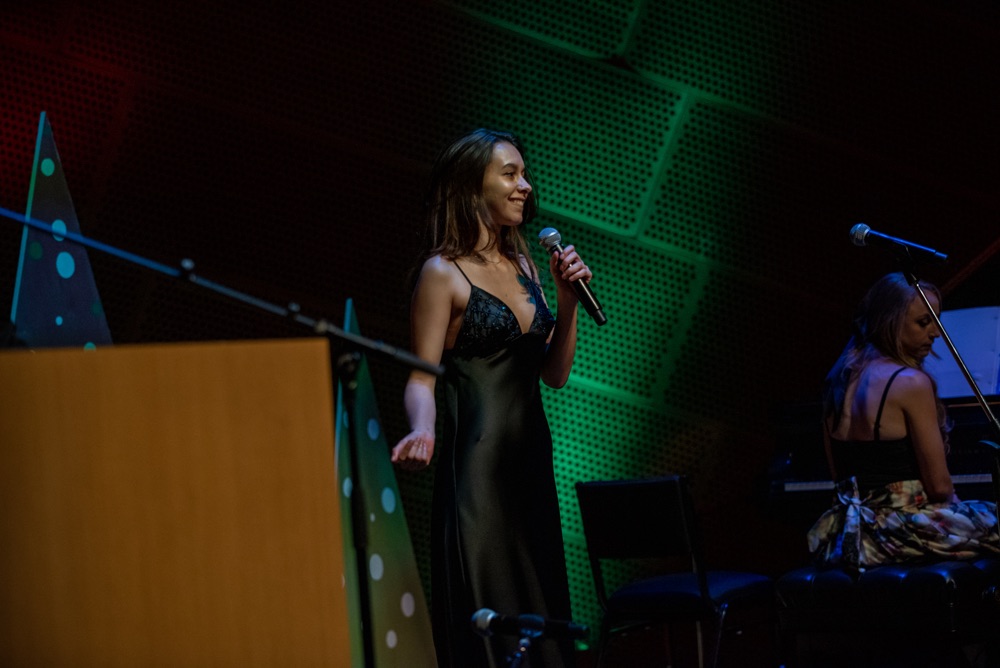
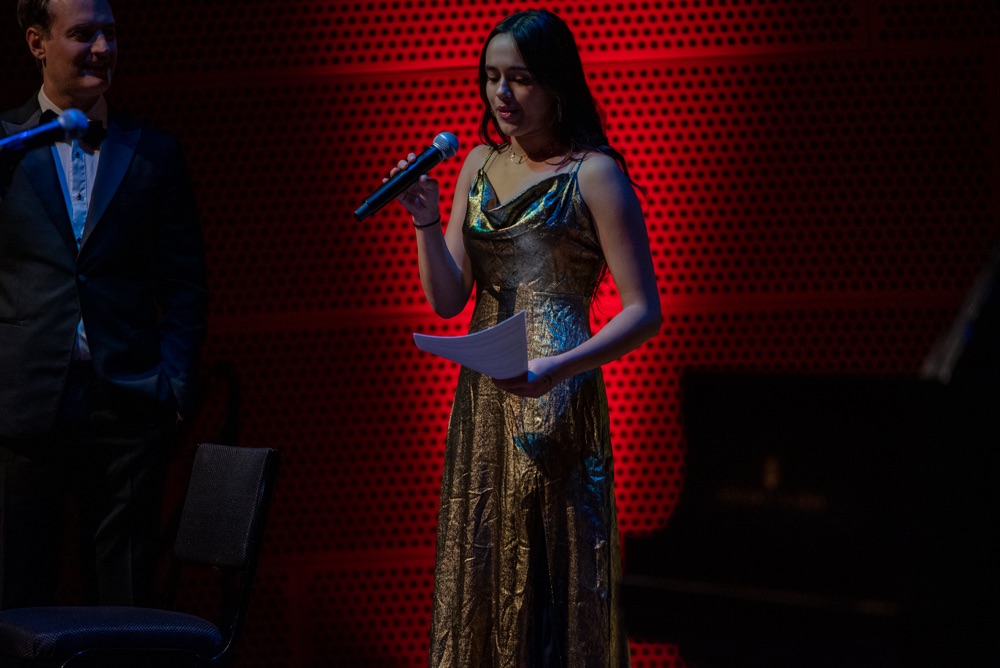

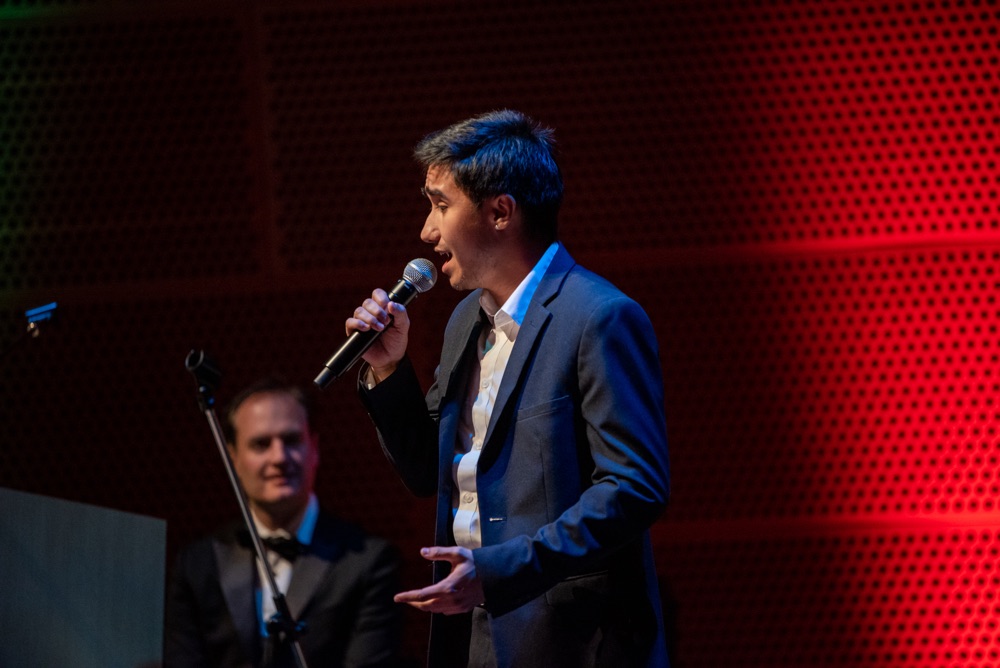

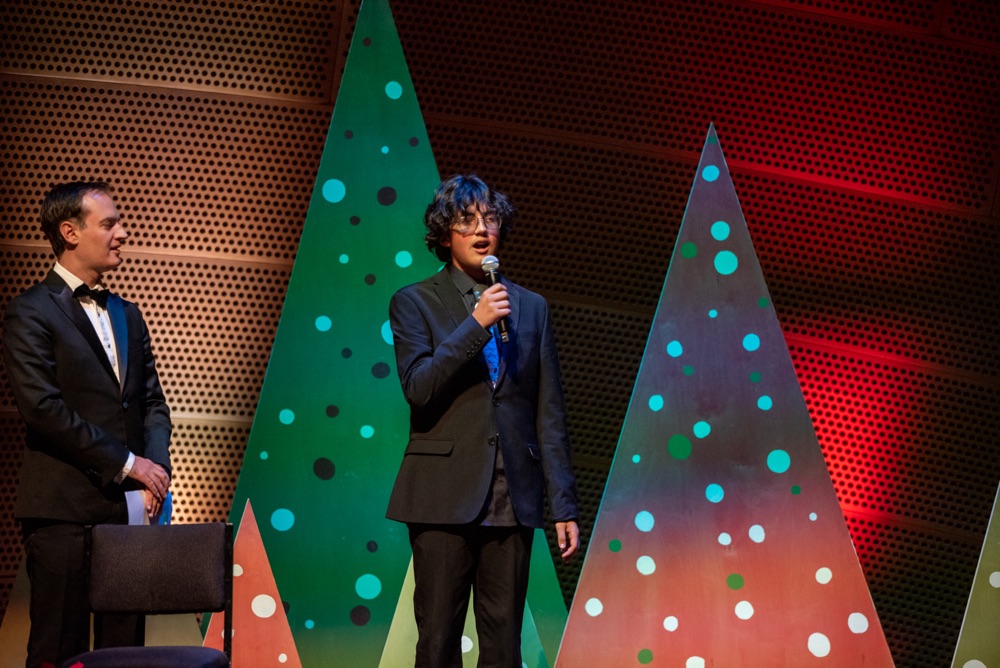
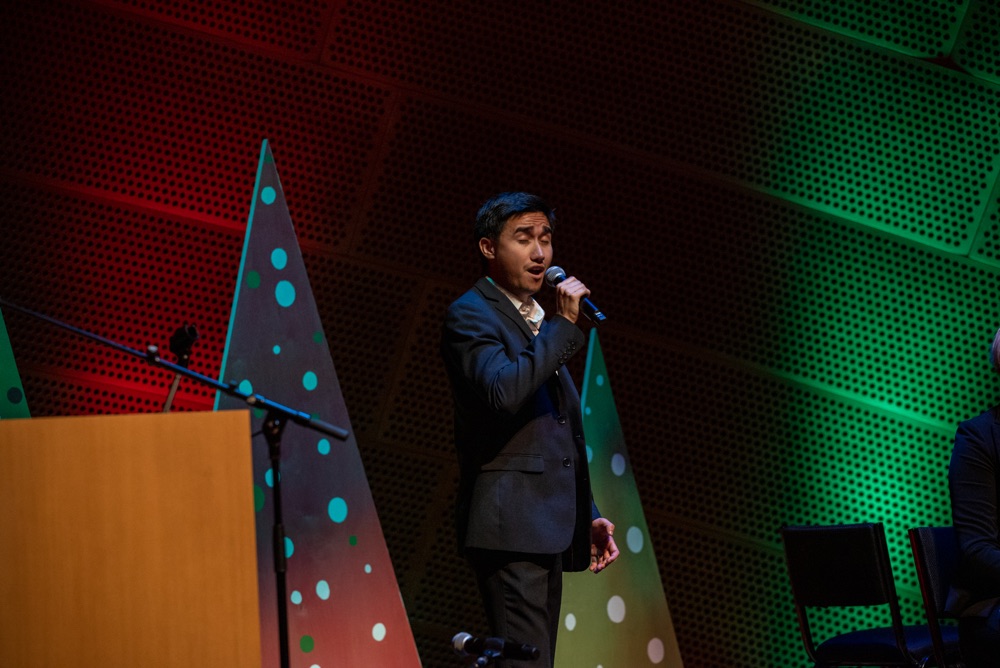
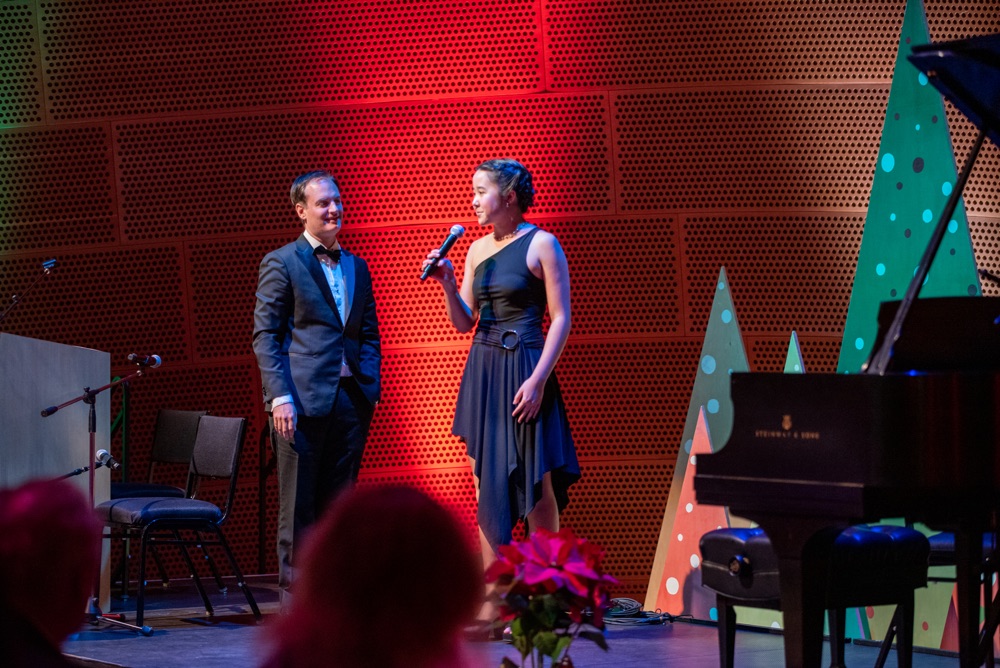

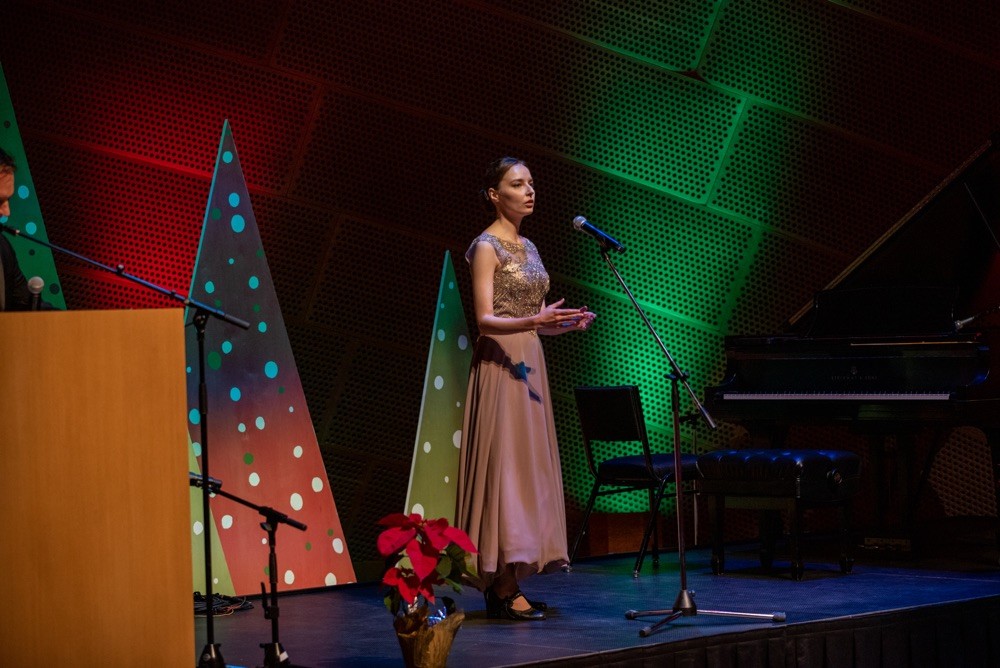

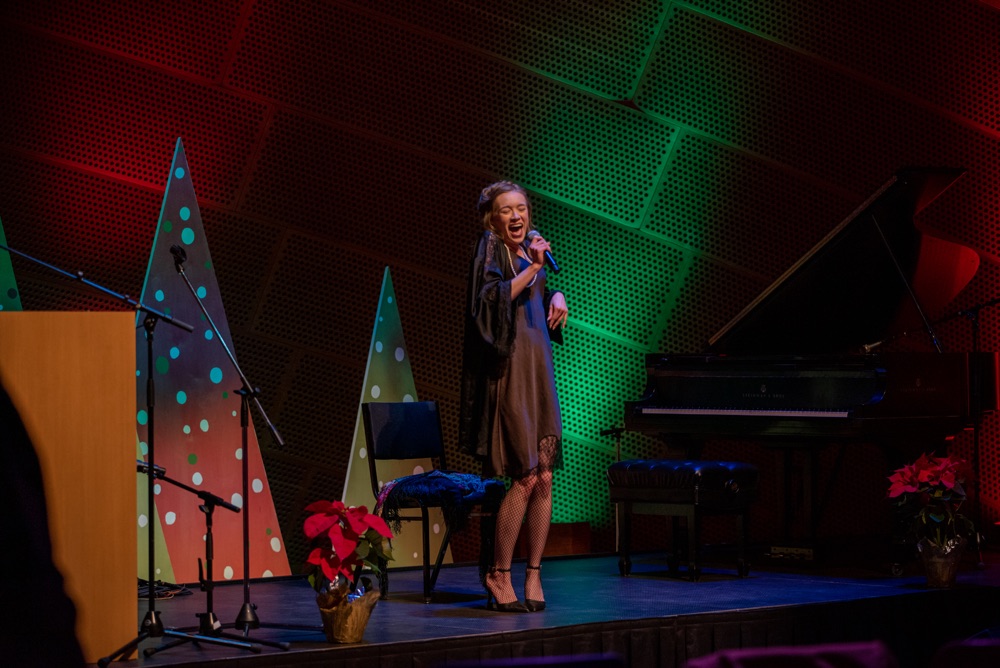
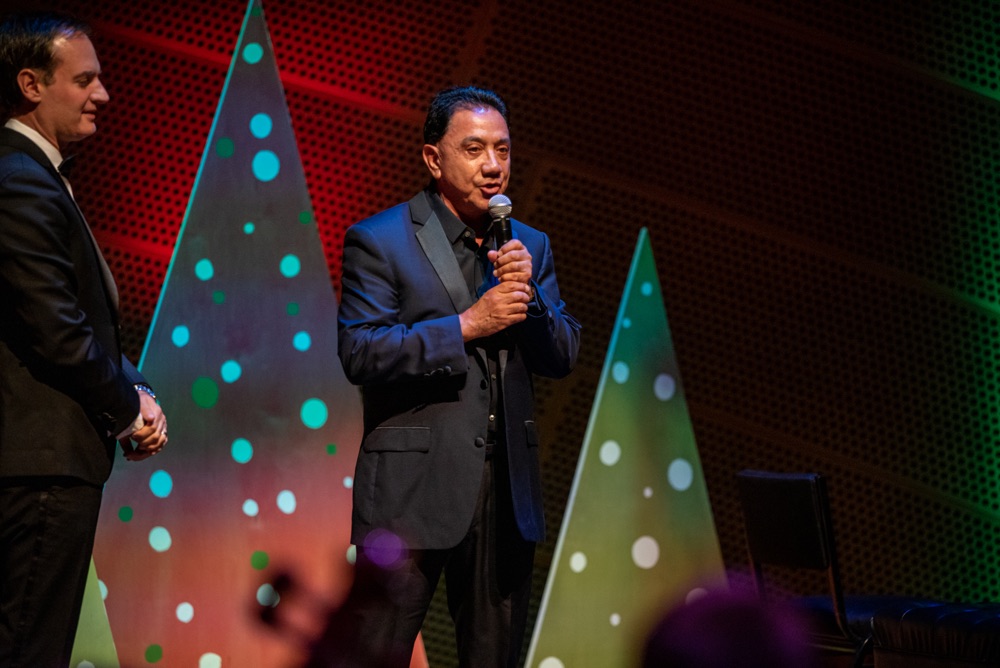



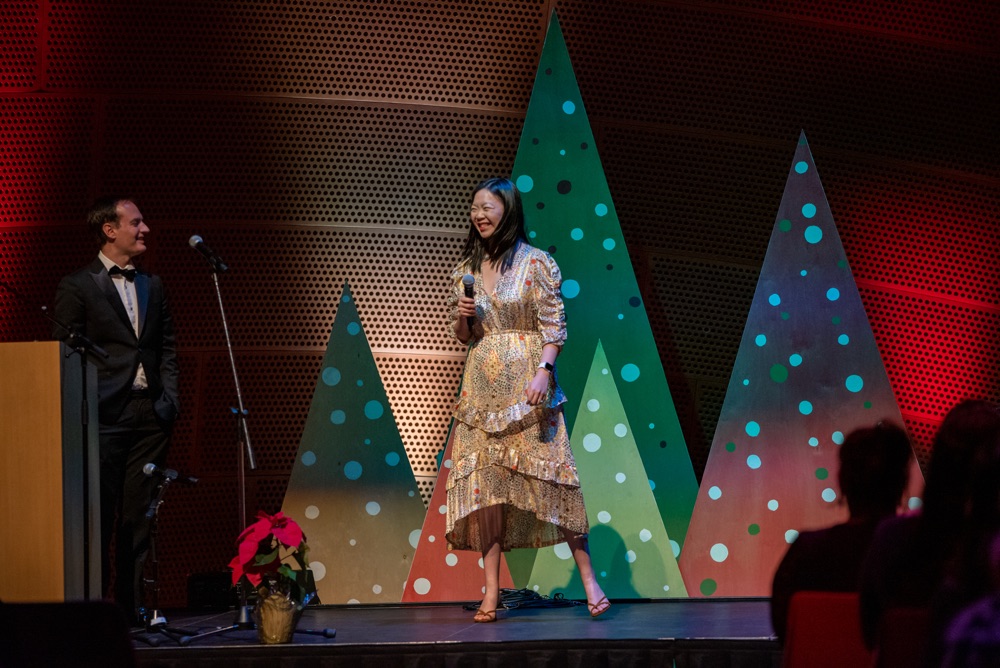


Frequently Asked Questions
Some of the best music ever written has been written for the human voice. From ancient chants, to Mozart’s operas, great Musicals to Jazz and your favorite pop artist. The human voice might have the greatest emotional potential of any other instrument because of the double impact of music plus the power of words. Voice students often find studying voice a very rewarding process, often with a variety of unexpected benefits, such as improved self confidence, body awareness, the therapeutic effects of learning to breath properly, and the thrill of singing with others or with instrumental ensembles.
Voice instruction for kids has been a tradition for centuries. While repertoire needs to be carefully selected by the instructor to avoid strain, gentle training with appropriate music is safe. We often begin a mixture of basic piano, rhythm and singing as early as age four.
Results are often noticeable in a few months. The variables include the students interest level, and the consistency of practice. Also, how closely the student follows the suggestions for practice. Many students find that recording themselves, listening to great singers as reference, and frequently participating in performance opportunities help to speed up progress. Students that set clear goals for themselves often find improved progress.
This is a question we frequently get from adult students. While you might not become the next Pavarotti, you might be surprised to see how far you can go. Many of our adult students are middle aged, and even older. There is no physiological reason an older adult cannot learn to sing, or improve his or her voice. In fact, adults sometimes are better able to understand helpful analogies and abstract ideas that are useful to training.
What will you learn in our Voice Lessons?
Taking a proper breath is one of the fundamentals of good singing. Simply put, it’s a breath that expands not just the upper lungs, but the lower lungs as well. In lessons there is on controlling the lower diaphragm which enables this expansion. A great breath also involves being upright posture, with an open chest, and a relaxed jaw. The throat should expand as well, and lips and tongue should take on the position of the intended vowell. A good singer’s breath will resemble the kind of expansion that a yawn will naturally produce.
Once taking in the breath is learned, students will next focus on exhaling. A great vocal technique involves controlling the speed and direction of the air. This is why great singers are able to sustain long notes for such an impressive amount of time. One great exercise is to lie on the floor and place a book on your stomach. Inhale deeply. As you begin to exhale, make a hissing sound and try to keep the book from dropping for as long as possible.
Just like any athlete, the muscles required for singing need to be gently warmed up.
It is best to start in the most comfortable part of the vocal range, and expand as it becomes easier. The “A” vowel is commonly used for warm ups because it required a relatively open and relaxed position for the jaw and lips. Start by singing three notes up and then down again. the goal is to connect the notes with the breath. The sound should be a smooth legato, (connected sound), and the feeling in the body should be open posture lungs and throat, without closing down as you move from one note to the next. As the range of the exercises increases, there is an emphasis on how shaping vowels in brighter and darker ways, and speeding up and slowing down airflow, can help to navigate the more challenging heights of the vocal range.
Warm ups are very valuable because they help the prospective singer focus simply on sound production, without getting caught up in the details of lyrics and musical interpretation.
Sight reading is an important skill for any aspiring musician. To begin, students are taught about treble and bass clefs, (different ranges), and to identify notes that are on the lines, and notes that are in the spaces between the lines. To remember the notes on the lines, students learn phrases such as, “every good boy does fine” The first letter of each word are the notes on the lines of the treble clef from bottom to top. E, G, B, D, F. The notes that are in the spaces between the lines spell the word “Face”, F, A, C, E. As students become faster at identifying these notes based on these simple phrases, the phrases wear off and they simply recognize the note for what it is. In addition to identifying notes, sight reading includes understanding rhythm. Rhythm is differentiated in notation by notes filled in or empty, and with different stems and beams. These indicate different speeds of notes. Even the most accomplished musicians can often improve their sight reading. More advanced training involves pushing speed and looking ahead, and through creating progressive goals.
Music theory teaches us how recognize and identify patterns across all music. It is fascinating because it starts to bring together a clearer understanding, and patterns once complex become simple. Imagine a complicated math equation that actually has a very simple answer.
Learning theory involves a mixture of ear training, (the ability to identify harmonies and melodies), as well as identifying and labeling these patterns on paper. Harmony is seen in notation vertically, and is often what might be described as the background in which a melody is set. Harmony consists of chords, (3 or more notes heard simultaneously), and can be Major, Minor, Diminished, and several others. These differences in sound are often described emotionally; happy, sad, or scary. The beginning of music theory training might involve identifying the difference between a couple of these chords. Ultimately, advanced theory students are able to write out the music they hear, and to analyze harmonies and melodies in musical scores. A full grasp on the structure of music can take years to develop.
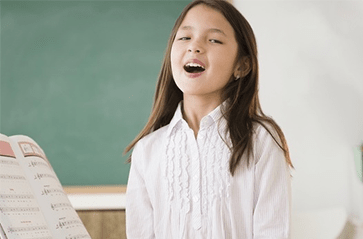
Start Lessons
Request info below and we will contact you as soon as possible!
"*" indicates required fields
